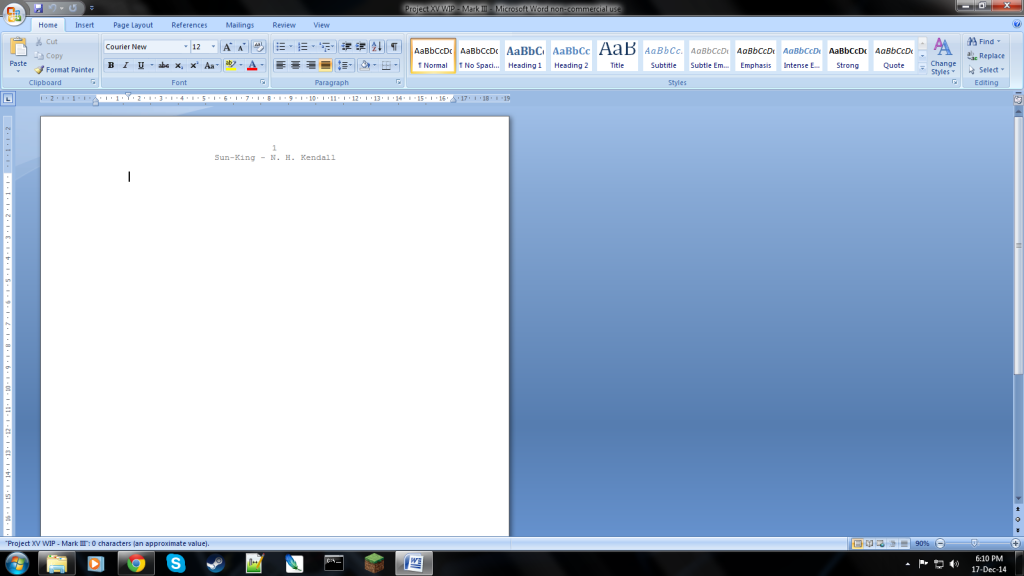Been doing a lot of book stuff but very little involved writing. Mostly been working on my maps.
Brigid once pointed out another blog post to me where someone had written a piece on the sins of fantasy writers. One of the points made was essentially “Maps were Tolkien’s thing. You aren’t Tolkien. Ergo, don’t do Tolkien’s thing.”
I have several problems with this.
First. I love maps. So fuck you, random internet person.

Second. Their entire piece was “No one is as good as Tolkien” copy-pasted until it was slightly shorter than War and Peace, which is admittedly shallow-minded and also debatable at its core.
Third. Seriously, who died and made them king of fantasy? Fuck you random internet person who I can’t bother looking up.
Maps and fantasy go hand-in-hand. Our world has maps, why wouldn’t a fantasy world? Maps are a great window into the human condition. From racial segregation, to the pride of nations. From isolated languages, to internet traffic in every corner of the world. Maps convey history, science, sociology, greed, adventure, stupidity, and the power to unite. A map can show the lines than humans have drawn over centuries of bloodshed, or in an instant erase them completely and show us as fleas on the side of an elephant.
A map in the first few pages of a novel might have trouble showing that sort of emotion. Without an known history, a history linked to who we are, a map might fall a little flat. Someone from Poland is going to see their western border in a very different way then the border between North and South Korea. Even if they were too young to experience either of the wars that set them.
It is the job of an author to make people care about the little map at the beginning. Whether it is of a continent, or a single mountain by a lake.
But, in a more pragmatic way, a map is a great way to show scale to a reader. Without context a hike from New York to Chicago can be five miles, fifty miles, five hundred miles. We know that it is a long way to hike. But we know that through experience and from looking at it on a map.
I think that if you are going to drop enough place names – actual, proper place names like “Main Street” or “Edinburgh” or “Poland” – it is important to use a map. ‘Enough,’ of course, is the key word. Use your brain, I can’t do it for you. But if a character just walks from “home” to “the grocer” and distance isn’t important, yeah leave the map on the desk.
Hmmm, I’m think about that urban sort of setting. Can a map help?
Eh… I won’t say no. I love maps.
Just -and this is a general complaint about naming places- put some thought into your names. I read the first book of the Codex Alera series by the well-known Jim Butcher. The map drove me crazy because I recognized several of the place names and it took me out of “fantasy” world and put me more in the mind set of “this person apparently assumes I’ve never cracked open a history book ever.”
That is definitely something I’d avoid. Given that series was based on a challenge given to him to write something based off two “lame” ideas given by someone on the internet, I wouldn’t be terribly surprised if some of the place names were after-thoughts. Still. “Aquitaine” is totally a place in France. Still is. Hard to think of it in a world of magic but that is totally a personal complaint; not bashing on Mr. Butcher.
Also, to the (other) guy on the internet who thinks Pokémon and the “Lost Legion” trope are lame.

As a game Pokémon is a lot of fun. If it is “lame” because it lacks depth or complexity, I’d say you are wrong (look up competitive builds and you’ll get the depth to the engine) and also having a less linear story/game-play is great for that an RPG. Wish they’d stop trying to shoe-horn their shitty writing into it.
The lost legion trope is fun, I wish they’d stop doing it with Legio Nona Hispana, that story is played-out. Honor and soldiery tropes, there is a lot to do there and a lot of things you can do to make it unique. Plus the idea of a larger, vastly superior force being ground to paste by a smaller, native population has some great historical baggage to bring along with it.
As subtle as a brick through a store window.


